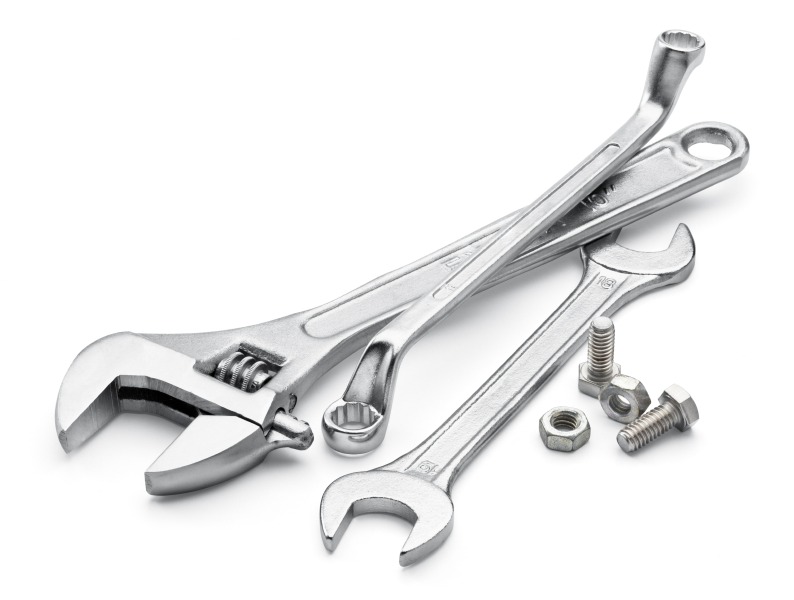Six Common Auto Repair Mistakes You Should Avoid
In today’s recession, an increasing number of Americans are doing their own automobile repairs. In a recent survey by AutomMD.com, they found that over 90% of do-it-yourselfers continued to perform the same amount of car repairs as in 2012, and over 40% reported performing even more repairs than the year prior! Clearly, the trend continues to grow for the average consumer to try and tackle their own car repairs. If you’re considering going that route, you should take some time to familiarize yourself with some of the most common, costly auto repair mistakes and how you can avoid them.

Here are six of them:
1. Forgetting oil changes.
This may seem trivial, but it’s not! Forgetting to change the oil in your vehicle (or simply neglecting it) can ruin the engine, necessitating a very expensive replacement. Do your best to stay on top of this; it will save you a lot of time and money. Changing the oil is a fast, 20-30 minute job that only costs you the price of the oil, filter and basic tools to handle the job.
2. Poorly maintained tires.
This is another seemingly inconsequential mistake that can end up being a big hassle if left unchecked. Monitor the pressure in your tires regularly, keeping them at the level recommended by the tire manufacturer. You will see it printed on the side of the tire. Overinflating them can cause a blowout and reduce traction, so don’t do it! If you maintain your tires, they will last longer and you’ll even get slightly better gas mileage (CS Monitor). If you don’t, you may be forced to make costly tire purchases you otherwise could have avoided.
Want to get a sense of how much you may have to spend in replacing tires? There are some sites on the web that will give you prices on tires for sale without having to contact a sales person just by searching their catalog on their web site.
3. Going to a mechanic for simple repairs.
There are plenty of rudimentary automobile repairs that you can do yourself. Wiper blades and light bulbs, for example, can be replaced easily. So can air filters, fuel filters, spark plugs and oil. It’s cheaper to do these repairs yourself, and it saves you the hassle of having to go visit a mechanic. Even if you don’t consider yourself to be a very good “do-it-yourselfer,” there’s always time to start learning.
4. Going to a dealership instead of an independent mechanic.
Oftentimes, if the auto repair procedures you need are relatively straightforward, you can save money by simply going to an independent mechanic. A locally owned mechanic shop generally has less overhead in their operations than a large dealership, and more competitive prices. There are instances, however, when you may be stuck with a dealership, such as needing a new ECU (Electronic Control Unit) module or other high-end computer system in the vehicle repaired or reprogrammed. Even then, some mechanics can handle these very manufacturer specific repairs as well, often with a smaller price tag.
5. Not getting a second opinion.
This is simple, but important. Price quotes for auto repair procedures differ from one mechanic to another, and you want to go with your best option. Look around and get a second opinion before you get your automobile worked on. Want to know if you are getting overpriced quotes or someone is trying to pull a fast one on you? There are several helpful, unbiased and commerically neutral tools on the web that can give you price estimates per job. AutoMD has one of them available for use here that allows you to input your vehicle, repair needed and zip code to get a general cost estimate.
6. Poor communication with your mechanic.
Going to an auto mechanic is a bit like going to a doctor. You need to be able to clearly articulate what problems your car is experiencing, and describe them to him in detail. The more information you give to your auto mechanic, the better equipped he will be to work on your car. You should also remember to note any recent repairs done on the car, and it helps if you have some basic knowledge of the various symptoms a faulty car may exhibit.
These six things should be avoided at all cost to ensure you are not wasting your hard earned money on unnecessary, overpriced, or really easy to do repairs. Stretching yourself a little bit beyond your comfort zone and taking on the challenge of some basic car repairs can not only be a fun challenge, but will help you to better weather the current economy as well!
Featured images:
License: Creative Commons
image source
License: Royalty Free or iStock source: www.istockphoto.com (image owned by article author)
Written by David Leiter (with article contributions by Dan Sem) works on a marketing team as a freelance writer, writing about financial advice, money saving tips, the auto repair industry, and more.

